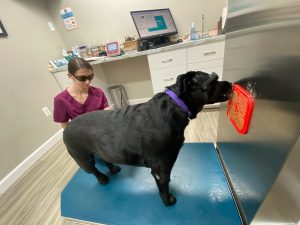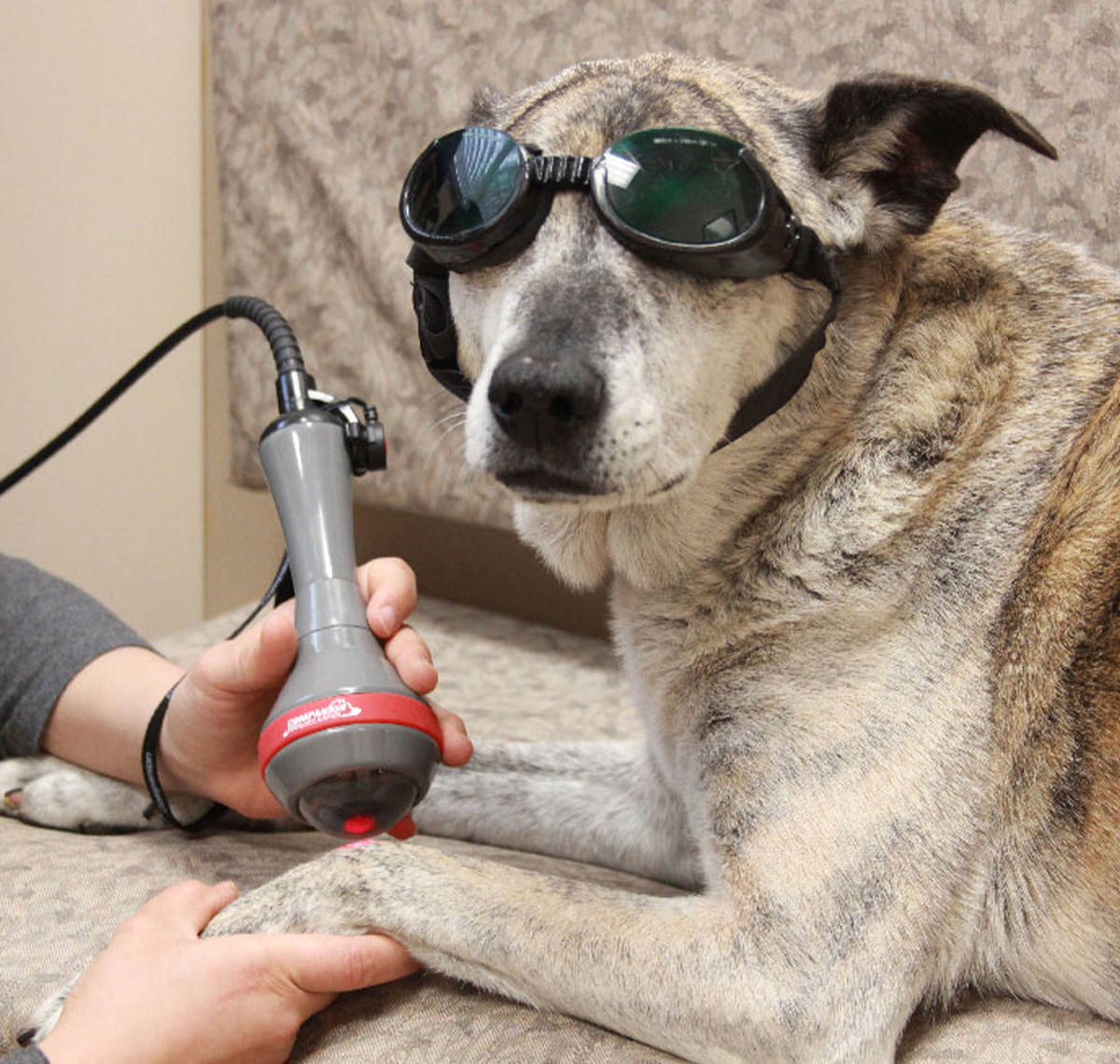A surgery free, drug free, non-invasive treatment
Laser therapy has been utilized in human medicine for the non-pharmaceutical treatment of pain and inflammation for over forty years. Recent advances in technology have allowed for shorter treatment periods, making this valuable method of pain relief available for pets. Like massage therapy and acupuncture, pet laser therapy can be used in conjunction with medication to treat chronic pain conditions such as arthritis, wounds, skin conditions, surgical incisions, and much more.
Cold laser therapy (also referred to as low-level laser therapy or Class IV laser therapy) uses focused light to increase blood circulation and stimulate the regeneration of cells. This non-invasive, drug-free treatment is used to treat inflammatory conditions.

How does Pet Laser Therapy help?
Pet laser therapy uses light waves of a specific wavelength to activate the alteration of tissue and cellular physiology. The light that is absorbed stimulates cell regeneration and promotes growth, repair, proliferation, and migration. The type of tissues that respond to laser therapy depends on the wavelength. Most laser therapies use red or near-infrared light with wavelengths of 600-1,070 nanometers. It is also known as cold laser therapy. This treatment is used to treat musculoskeletal issues like arthritis as well as the following:
Surgical Procedures
Our state-of-the-art surgical rooms paired with in-house diagnostic testing, gives us the versatility to perform a wide range of surgeries for our clients, from routine spays and neuters to more complex procedures and even emergency surgery. *Procedures are subject to location.
Pet Laser Therapy for Pain Management
This cutting-edge treatment is suitable for relieving pain in pets with arthritis. Class IV cold laser therapy is especially effective at treating pets struggling with osteoarthritis pain whether or not they have had orthopedic surgery.
The therapy relieves pain by reducing the inflammation by activating the lymphatic drainage system to drain the swollen areas. The laser also stimulates nerve cells to block the pain signals from being transmitted to the brain, thereby reducing nerve sensitivity. With less swelling, inflammation, and the interruption of pain signals to the brain, the animal finds pain relief.

How Cold Laser Therapy is Administered
The vet first assesses your pet’s pain management needs to determine if it is a candidate for laser therapy. This is because this therapy is not ideal for pets with cancer as it can worsen the condition or spread the malignancy.
Next, the veterinarian customizes a treatment plan which may take 8-10 sessions depending on your pet’s condition. The duration also varies based on the pet’s weight, size, and treatment requirements. For example, a vet may recommend 8-10 minute sessions for smaller dogs and 30-minute sessions for larger dogs with chronic pain. During the session, the pet lies on a table or a blanket on the floor to ensure the laser beams penetrate the right area. The veterinarian may also dim the lights and play soothing music to calm the pet down.





